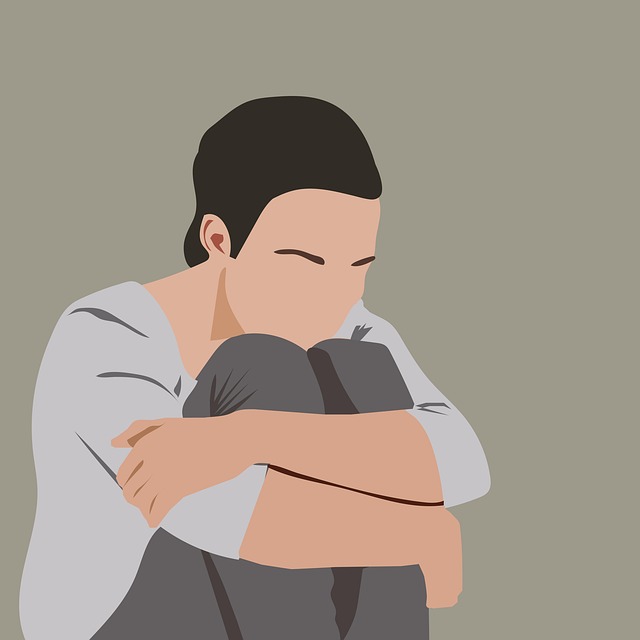Social media's impact on teen mental health, particularly regarding depression, is a growing concern. While online platforms offer connection and access to resources like therapy for teenage depression, excessive or negative digital engagement can lead to anxiety, low self-esteem, and isolation. Digital detox periods aim to mitigate these effects, improving mood and encouraging tailored therapy options, outdoor activities, and face-to-face interactions. Innovative online solutions, such as cognitive-behavioral therapy (CBT) and peer support groups, leverage social media to provide accessible mental health resources and foster healthy coping mechanisms within online communities.
In the digital age, social media’s influence on teen mental health is a growing concern. This comprehensive article delves into the complex relationship between online interactions and adolescent well-being, exploring how social media can both contribute to and mitigate symptoms of depression. From understanding the connection to the potential benefits of digital detox and therapeutic approaches using social media as a tool, we navigate strategies to support teen mental health in today’s world. Discover insights on combating teenage depression with modern solutions.
Understanding the Connection: Exploring the Link Between Social Media and Teen Depression
Social media’s influence on teens is a complex and increasingly studied topic, especially regarding mental health. The connection between social media engagement and teen depression has sparked significant interest among researchers. While social platforms offer opportunities for connection and support, excessive or problematic use can contribute to negative outcomes, including low mood and increased anxiety.
Teens, particularly those struggling with their identity and emotional well-being, are susceptible to the curated nature of online profiles. Constant exposure to idealized versions of life can lead to feelings of inadequacy and a distorted self-perception. This is especially concerning as it may trigger or exacerbate existing symptoms of depression. Therapy for teenage depression often addresses these concerns, focusing on building resilience against societal pressures and promoting healthy coping mechanisms in the digital age.
The Role of Online Interactions in Shaping Youth Mental Well-being
The online world has become a significant space for teens to connect, share experiences, and seek support. However, this digital realm can also be a double-edged sword when it comes to mental health. Online interactions play a complex role in shaping youth mental well-being, offering both potential benefits and challenges. On one hand, social media platforms provide a sense of community and belonging, allowing teens to connect with peers who may share similar experiences or struggles. This sense of connection can be therapeutic and help combat feelings of isolation, especially for those dealing with teenage depression. Online support groups and forums dedicated to mental health awareness offer accessible therapy for teenage depression, where young individuals can openly discuss their challenges without the barriers of face-to-face interactions.
Yet, excessive or negative online engagement can have detrimental effects. Cyberbullying, online peer pressure, and the constant exposure to idealized images can contribute to increased anxiety, low self-esteem, and depression. Teens may compare their lives to carefully curated online profiles, leading to feelings of inadequacy. Moreover, the anonymity of the internet can sometimes encourage toxic behaviors and negative interactions, further impacting a teenager’s mental health. Understanding these dual aspects is crucial in navigating the relationship between social media and youth mental well-being, especially when seeking appropriate interventions like therapy for teenage depression.
Digital Detox: Can Reducing Screen Time Improve Teenage Depression Symptoms?
In today’s digital era, teenagers spend an alarming amount of time on social media platforms, which has led many to wonder about the potential impact on their mental health. One approach gaining traction is the concept of a digital detox—a period of reduced or no screen time. This strategy aims to mitigate the negative effects of excessive social media use and offer a much-needed break from the constant connectivity. By stepping away from devices, teens may experience improved mood and symptoms of depression, providing an opportunity for them to reconnect with reality and engage in more meaningful activities.
Reducing screen time can open doors to various therapy options tailored for teenage depression. Without the constant distraction of social media, individuals can focus on processing their emotions and developing healthier coping mechanisms. This shift can lead to better self-awareness, improved relationships, and increased productivity. Moreover, it encourages outdoor activities and face-to-face interactions, which are known to boost overall well-being and provide a much-needed break from the virtual world.
Therapeutic Approaches: Utilizing Social Media as a Tool for Treating Teenage Depression
Social media has become an integral part of a teenager’s life, offering both opportunities and challenges for their mental well-being. When it comes to addressing teenage depression, innovative therapeutic approaches are leveraging this digital landscape. One such approach is using social media platforms as tools for treatment. Online therapy sessions, peer support groups, and even creative expression through sharing art or writing can provide safe spaces for teens to connect, share experiences, and gain support. These digital interventions offer accessibility and convenience, breaking down barriers to mental health care.
By utilizing social media, therapists can engage teens in evidence-based practices such as cognitive-behavioral therapy (CBT) in a more interactive and relatable manner. Sharing positive affirmations, challenging negative thoughts, and encouraging healthy coping mechanisms through online communities can be highly effective. Additionally, social media allows for the dissemination of mental health resources, raising awareness and reducing the stigma associated with seeking help. This modern approach has the potential to improve therapy outcomes and make support more accessible to teens who may feel comfortable opening up in this digital realm.
Social media’s impact on teen mental health is multifaceted, with both positive and negative effects. While online interactions can provide support and foster community, excessive screen time has been linked to increased symptoms of depression. However, by understanding the connection between social media and teen well-being, we can develop effective strategies such as digital detox programs and therapeutic approaches, including the innovative use of social media platforms as tools for treating teenage depression. Through these efforts, we aim to enhance mental health support for young individuals in the digital age.
